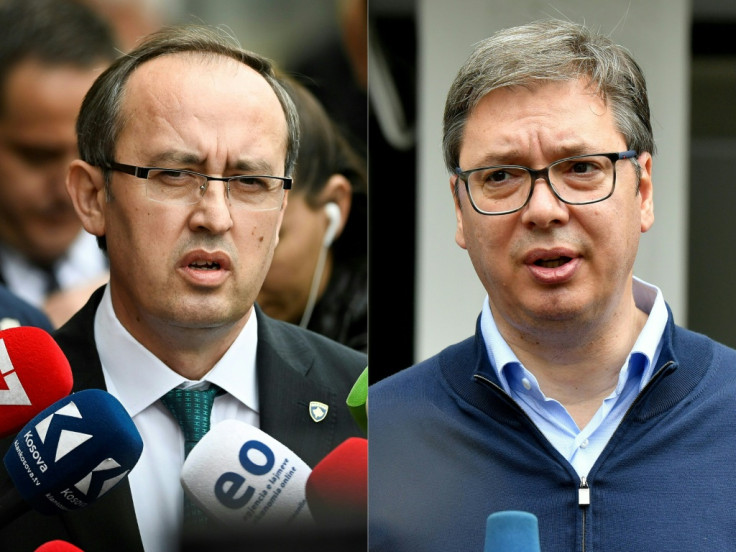Trump to host summit between bitter enemies Kosovo and Serbia
More than two decades after their bloody ethnic conflict, Serbia refuses to recognize the independence that its former province Kosovo declared in 2008.
The United States hopes to foster a breakthrough in talks between Balkan war foes Kosovo and Serbia as leaders of the two countries meet at the White House Thursday and Friday.
More than two decades after their bloody ethnic conflict, Serbia refuses to recognize the independence that its former province Kosovo declared in 2008.
US officials hope that bringing Kosovo Prime Minister Avdullah Hoti and Serbian President Aleksandar Vucic together for discussions on economic cooperation could help set them on the road for improved relations.
"We're kind of stuck on political discussions and we keep pounding the same issues over and over without much progress," said an advisor to President Donald Trump on the issue.
"We do believe that a concentration on the economic development side would produce progress," the advisor told reporters, on grounds of anonymity.
But coming two months before the US presidential election and without a major agreement promised, the summit has the feel, some think, of a show to display Trump as a master of diplomacy.
While Brussels has been leading negotiations between the two sides for nearly a decade, the US has recently sought a role under Richard Grenell, a special envoy appointed by Trump.?
While Grenell has been accused of complicating the EU-led process to bring Belgrade and Pristina to an accord, he succeeded in arranging for the two sides to meet.
A first meeting planned in June was aborted after Kosovo President Hashim Thaci was indicted for war crimes arising from the 1990s conflict by special prosecutors in The Hague.
Both sides agreed last month to reschedule, with economic issues at the center of talks.
Hoti said they would discuss "major projects that will change the economic perspective of Kosovo and the region."
The Trump advisor said that the US role has been to bypass politicians and focus on the issues of businesspeople, who want to expand commerce.
"Companies are frustrated," the advisor said. The political communities on both sides "have largely failed to move us forward."
Washington wants to see if more investment and job creation "could somehow change the dynamic of the situation."
The advisor cited recent agreements on opening road, rail and air links, though the latter has yet to result in an initial flight between Belgrade and Pristina.

"On Thursday... we're going to further those three agreements, and then add a whole bunch of issues to the discussions that would create commerce, that would create economic development and jobs," the advisor said.
A deal could help begin closing the conflict's bitter wounds.
More than 13,000 died in Kosovo's separatist war against Serbia in 1998-99, mainly Kosovo Albanians.
But Kosovo rebels were also accused of reprisals on Serbs and fellow Albanians during and after the conflict.
The war ended after NATO intervened to bomb Serb troops, forcing them to withdraw.
A deal even on seemingly minor economic issues is fraught with politics.
Ahead of the meeting, Kosovo said the goal was to finalize the three transport pacts.
But Hoti stressed the end game is reciprocal recognition.
"Otherwise there will be no normalization of relations," Hoti said.
Some worry that, if the aim of the summit is to boost Trump's reelection prospects, Washington could quickly lose interest if nothing happens.
"Grenell's objective is to forge some sort of a quick win on economic issues that he can present as a foreign policy success for the Trump administration," said a former US diplomat.
"We have the best chance of success in terms of moving issues forward in the Balkans when the US and Europe are working hand in hand with a common agenda," the diplomat said. "In this case, we don't see either one of those things."
But Damir Marusic, a senior fellow with the Atlantic Council, said Europeans should support whatever comes of the summit.
"It would be a shame to let opportunities pass due to fits of pique," Marusic said. "A smaller win may be possible, and could be significant."
Copyright AFP. All rights reserved.
This article is copyrighted by International Business Times, the business news leader





















